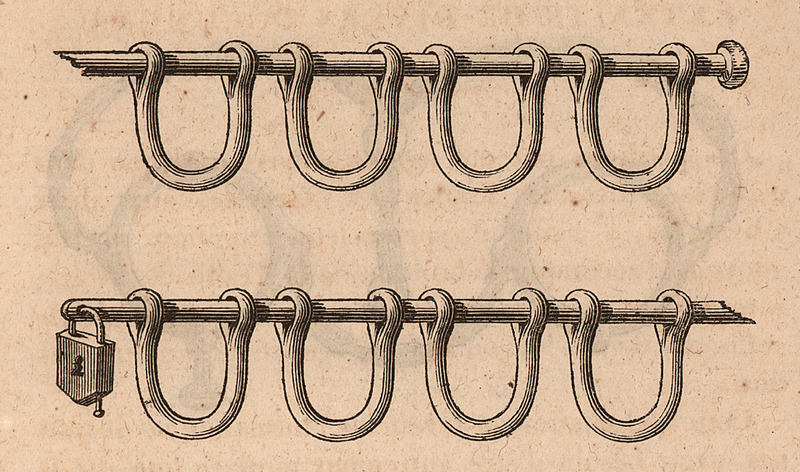Shackles and Padlocks Used on Slave Ships, early 19th cent.

A blacksmith in Nantes, the major slaving port in France when this booklet was published, provided an explanation for this illustration which notes this bar/rod should be soldered in such a way that the big padlock can pass through a hole drilled in one of its ends, before fastening the manacles. As many men as there are manacles can be attached to this bar if only one man is attached to each manacle; or half that number if only one foot of each is attached (p. 16; our translation). The image appears in a booklet published by a French society against the slave trade. See also, image JCB_01203-2.
Image Title
Shackles and Padlocks Used on Slave Ships, early 19th cent.
RegID
SI-OB-774
Title
Shackles and Padlocks Used on Slave Ships, early 19th cent.
Source
Faits relatifs a la traite des noirs (published by the Société de la morale Chrétienne. Comité pour l'abolition de la traite des noirs; Paris, 1826), p. 16. (Copy in the John Carter Brown Library at Brown University)
Language
French
Item sets
Slave Ships & the Atlantic Crossing (Middle Passage)
Spatial Coverage
Atlantic
Reproduced In
Faits relatifs a la traite des noirs (published by the Société de la morale Chrétienne. Comité pour l'abolition de la traite des noirs; Paris, 1826), p. 16.
Researchers
Handler, Jerome; Tuite, Michael; Randall Ericson; Henry B. Lovejoy Graduate Research Assistants: Tiffany Beebe; Travis May
Identifier
JCB_01203-4